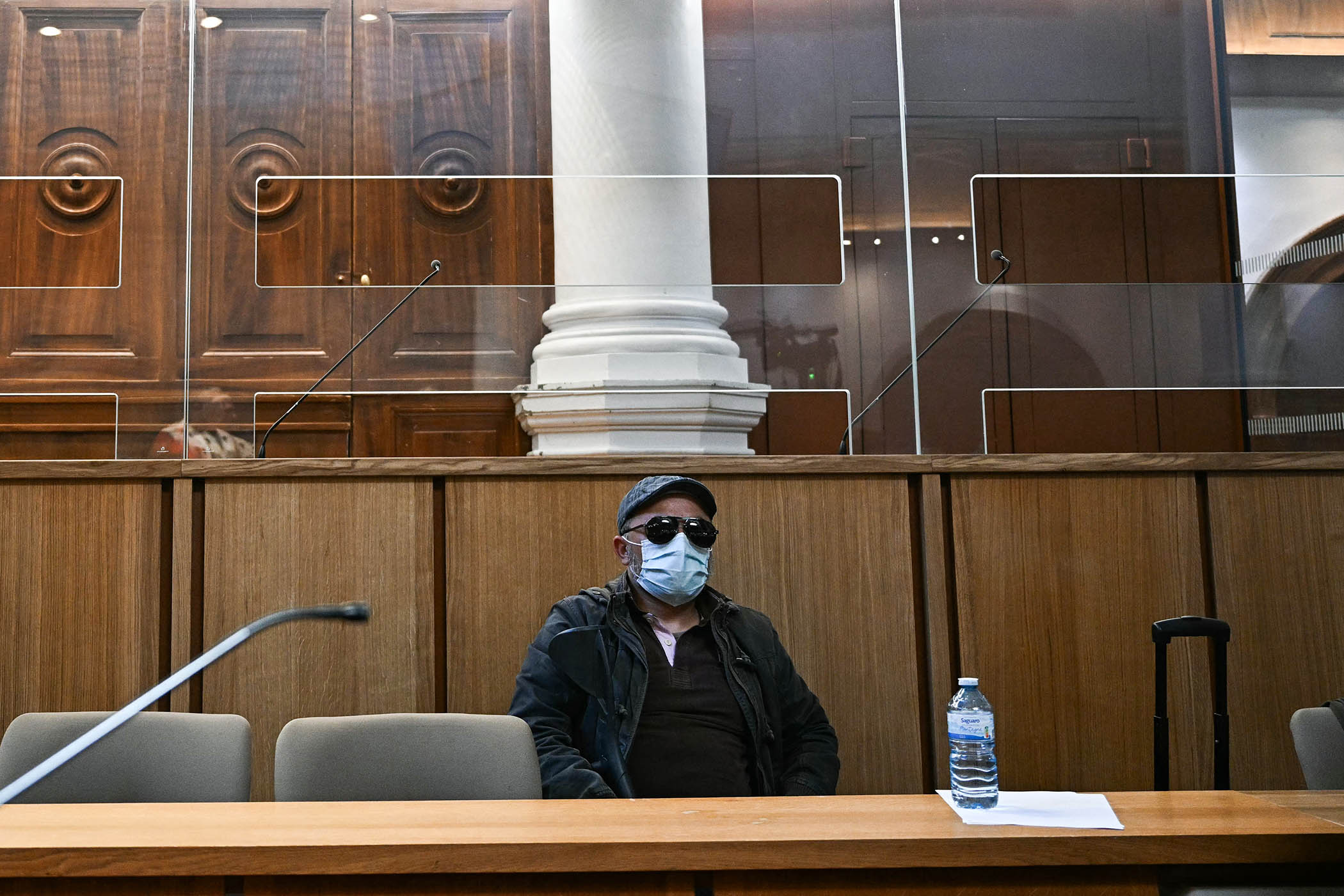It was a judgment that surprised no one. The only man to challenge his conviction for raping Gisèle Pelicot while she was drugged and unconscious was found guilty on appeal on Thursday. Husamettin Dogan, a 44-year-old unemployed builder, also saw his sentence for aggravated rape increased from nine to 10 years.
The four-day hearing was a concentrated rerun of the historic three-and-a-half month trial in Avignon that ended last December with the conviction of 51 men for rape or sexual abuse, including Pelicot’s husband, Dominique, one of France’s worst sexual predators, who was sentenced to 20 years in prison.
For almost a decade, he had laced his wife’s food and drink with a cocktail of drugs, rendering her virtually comatose, and invited strangers recruited from an online chatroom into their home to rape her inanimate body while he filmed them.
But the energy and optimism that accompanied Pelicot’s transformation into an international feminist icon for waiving her anonymity in Avignon and insisting “shame changes sides” has dissipated in France over the last year.
Legislation to define “consent” is currently held up in a parliament paralysed by political chaos; rape and sexual violence cases increased by 9% last year, according to official figures. Attitudes have been slow to evolve.
‘This case has raised anger and indignation and highlighted the treatment of victims. But a lot of men still don’t get it’
‘This case has raised anger and indignation and highlighted the treatment of victims. But a lot of men still don’t get it’
Marie-Thérèse Ausset
For the women who clapped Pelicot into and out of the 19th-century courthouse in Nîmes last week, there was a question of what had it all been for.
“This case has raised a wave of anger and indignation – and highlighted the treatment of victims – but not much change. A lot of men still don’t get it and we can’t change things without them,” said Marie-Thérèse Ausset of Les Simones, a feminist choir based in Nîmes.
Behind the imposing neoclassical columns of the Palais de Justice, it was a grim case of deja vu. Only Pelicot, 72, appeared to have changed as she strode into court with the quiet confidence of a seasoned combatant.
Outside, she smiled serenely and exchanged pleasantries. Inside, she was punchy, clashing with defence lawyers insinuating she should have – must have – known of her husband’s perversions, and insisting she was an “ordinary woman”, not an icon.
Galled at being dragged back into court to face questions about her sex life and graphic videos of her abuse, she directed her ire and indignation at Dogan. Taking the stand feet from where he sat staring forward, she railed at his hunched back: “At what point will you recognise that you raped me? At what point did I give you my consent? Never. I’m ashamed for you. You say you are a victim. A victim of what? The only victim in this room is me. At no moment did I give my consent.”
Newsletters
Choose the newsletters you want to receive
View more
For information about how The Observer protects your data, read our Privacy Policy
“That he could believe I was consenting is utterly despicable,” she told the jury of five men and four women. What her husband had done, she said, was “unimaginable, unthinkable”; her life had “exploded”. She added: “Who could imagine such a thing?”

Also hard to imagine was what Dogan – a married father and the principal carer of a child with Down’s syndrome, who admitted he had a vigorous extra-conjugal sex life, including visiting a prostitute “once a year” on his birthday – hoped to achieve by appealing.
His defence was unchanged. Yes, he had visited the Pelicots’ home. Yes, he had “sexual relations” with Pelicot. Yes, Pelicot appeared “to be dead” when he entered the couple’s bedroom. Yes, the situation was “strange… bizarre”. No, he was “not a rapist”.
He thought he was taking part in a consensual threesome, he said. He thought Pelicot was sleeping until suddenly, somehow, he knew she was not, he said. He thought at that point he should leave and fled the house, stopping only to retrieve his tracksuit bottoms. All were arguments aired and dismissed at the earlier trial. It needed Pelicot to remind him: “It would have been better to have left suddenly before raping me and not afterwards.”
The female police officer who interviewed Dogan said he told her: “You’ve got no proof. You haven’t caught me in the act.”
But Dominique Pelicot had. Detectives found 156 files containing 4,000 videos and images of the sordid depravity he directed in a mundane blue folder marked “abuse” on a hard drive.
The 14 video clips in which Dogan featured told a different story. Each showed Dogan abusing Gisèle Pelicot’s inanimate body multiple times in numerous ways. In all, they ran for less than 15 minutes, but it seemed an eternity as those in court sat through clip after clip with mounting unease.
Pelicot stared at the ornate ceiling, at her phone, at Dogan. The jurors watched grim-faced.
Dogan stared at the images. Not once in four days did he look at Pelicot. His final words to the court were: “I never wanted to hurt that lady.”
There was one ray of light in this otherwise tenebrous and sordid affair. Dogan’s lawyers made an 11th-hour attempt to have historical intimate images of the Pelicots shown to the court.
Her lawyers Stéphane Babonneau and Antoine Camus objected, citing the 2011 Istanbul convention, tackling violence against women and girls, article 54 of which states “evidence relating to the sexual history and conduct of the victim shall be permitted only when it is relevant and necessary”.
After a brief suspension, the judge ruled the images were an “unjustified invasion of privacy”, a decision setting a strong legal precedent for rape victims.
As Ausset said: “The trial hasn’t been entirely useless. We’re shaking patriarchal structures constructed over centuries. It’s about small steps.”
Dominique Sié, the public prosecutor, also concluded his courtroom address on a hopeful note: “Shame has not yet changed sides. But perhaps, just perhaps, it’s in the process of doing so.”
Photograph by Arnold Jerocki/Getty Images. Other pictures by Gabriel Bouys/AFP via Getty Images



